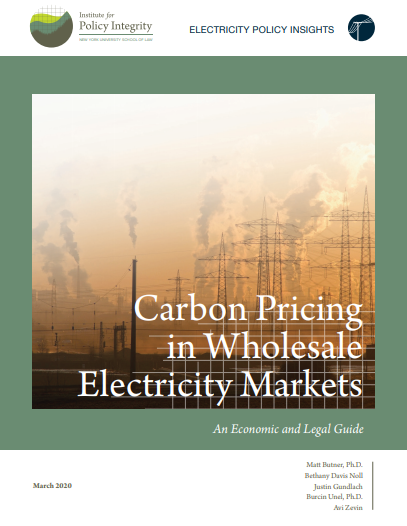Increasingly, policymakers are recognizing the urgent need to reduce the carbon-dioxide emissions that contribute to climate change. Economics teaches that forcing emitters to pay a price for each ton of CO2 that they emit can achieve the emissions reductions policymakers seek at the lowest possible cost. With that in mind, a number of organized wholesale electricity market operators—called Regional Transmission Organizations—are exploring or developing affirmative carbon-pricing rules, in which the RTO prices CO2 emissions directly in energy market operations. These rules have the potential to reduce CO2 emissions in a way that complements the competitive structure of electricity markets, making this approach an important opportunity for wholesale market stakeholders to consider.
This report explains how carbon-pricing rules in organized wholesale electricity markets can improve economic efficiency. It then explores the economic principles and legal requirements for RTOs, states, and the Federal Energy Regulatory Commission to consider when implementing a carbon-pricing rule in organized wholesale electricity markets. And it identifies several policy-design approaches that, to varying degrees, meet those economic principles and are likely to be found legally permissible.

